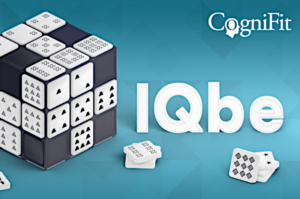
CogniFit’s Long-term Investment in Research: Planning for the Future of Digital Therapeutics
Since our founding, CogniFit has been dedicated to creating cognitive solutions based on the most rigorous and up-to-date scientific understanding of the human brain, our cognitive abilities, and the neurological processes our brains perform.
Our goal is to provide unique, engaging, and—most importantly—effective digital solutions for cognitive and mental health issues so that people are able to live fuller, healthier, and better lives.
These are the things we have in mind as we work to build ongoing partnerships with scientists, universities, and research institutions to further the scientific understanding of digital therapeutics and cognitive stimulation solutions.
Investing in the Future of Digital Therapeutics (218/200 Words)
As one of the market leaders of cognitive stimulation and brain training solutions, CogniFit currently provides individual users, schools, healthcare professionals, researchers, and commercial partners a broad range of cognitive assessment and training solutions designed to explore the specific neurological processes involved in general areas such as attention, memory, reading comprehension, driving, or age-related cognitive decline for seniors over 55.
As we look to the future of cognitive digital solutions, we see exciting opportunities for growth. One way we are planning for the future of digital therapeutics and brain training technology is through investment in research to understand the efficacy of digital cognitive solutions, such as those offered by CogniFit, for the identification, treatment, or recovery from specific pathologies such as depression, ADHD, or Parkinson’s Disease as well as for therapy for other medical issues such as recovery from the detrimental cognitive effects of Chemotherapy.
While many of the research projects into the utilization of digital therapeutics technology for pathology assessment and intervention are still in the early stages, we are seeing very promising results and are actively participating in dialogues with industry regulators to ensure the development of any solution for these areas will meet the incredibly high bar of quality medical professionals and patients expect and deserve.
Let’s look at some of these promising cognitive therapeutic research projects coming up in the next few years:
Planned Research Projects:
Insomnia (Q2 2022)
The next major scientific research project to study the efficacy of the CogniFit platform is scheduled for the second quarter of 2022. This study, led by researchers at Fundación Fisabio and Hospital Universitario de La Ribera seeks to study the effects digital cognitive training tools like CogniFit can lead to the improvement of the cognitive skills related to insomnia.
This study will build on similar studies such as this one.

Chemo Brain (Q3 2022)
A study will be carried out in the third quarter of 2022 looking into the use of digital cognitive tools to compensate for the cognitive deficits in neuropsychological functioning derived from cancer treatments, a group of symptoms often referred to as ‘Chemo Brain’. This study will be conducted by a team of scientists from Fundación Fisabio and Hospital Universitario de La Ribera

Epilepsy (Q3 2022)
Also in the third quarter of 2022, teams from Apoyo Dravet and Hospital Ruber International will begin a research project to study the use of cognitive stimulation tools to aid in improving the dysfunctional skills that underlie the cognitive phenotype of persons with epilepsy

Depression (Q4 2022)
In the final quarter of 2022, research will begin to study whether participants who undertake a cognitive intervention using digital cognitive tools such as CogniFit notice an improvement in the cognitive skills related to depression. This study will be led by a team from The University of New York in Prague.
This research project builds on previous research, which can be found here.

Multiple Sclerosis (2023)
The Max Stern Yazreel Valley College will be conducting a study in 2023 to test whether digital cognitive tools such as CogniFit can lead to an improvement in the cognitive skills related to multiple sclerosis (MS).
This research project builds on previous research, which can be found here.

Stroke (2023)
More Information Coming Soon.
Dyslexia (2023)
More Information Coming Soon.
ADHD (2023)
More Information Coming Soon.
Parkinson’s (2023)
More Information Coming Soon.
Dyscalculia (2024)
More Information Coming Soon.
Fibromyalgia (2024)
Alzheimer’s disease (2024)
More Information Coming Soon.
Though we aim to create cognitive assessment and brain training programs that users find enjoyable and engaging, we are making more than just games. All of our products are cognitive tools developed using the strictest, peer-reviewed scientific literature available.
For more information on how we have used scientific validation to become one of the most well-recognized brain training platforms throughout the scientific community, visit our Scientific Validation page here.













